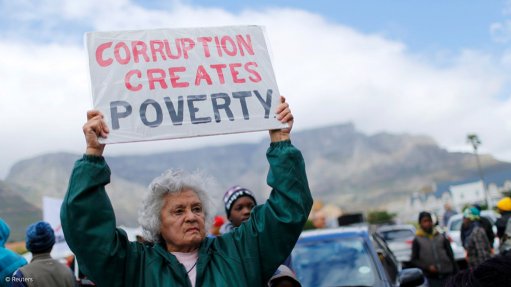Frontier for ESG investing
As a concept, ESG – environmental, social and governance – has gathered much momentum in recent years, with a 2022 study by asset management firm Capital Group finding that 89% of investors are swayed by these metrics when deciding where to put their money. What’s more, $2.5-trillion is believed to be in ESG assets under fund management worldwide.
The concept refers to the nonfinancial framework used to assess a company’s business practices and performance on a variety of sustainability and ethical issues. Making up the environmental pillar are companies’ strategies to optimise energy use and tackle climate change, as well as reduce waste, biodiversity loss and greenhouse-gas emissions, besides others.
The social pillar is equally multidimensional, focusing on human capital development metrics such as employee engagement and the payment of “living wages”, as well as companies’ impact on their host communities, besides others, while the principles at the core of the governance pillar are accounting integrity and transparency, and ethical business practices.
ESG is very much on the radars of companies with operations on the African continent. A survey focusing on our Southern African neck of the woods that was conducted by professional services firm PwC earlier this year showed that, with respect to the social pillar, 46% of CEOs are concerned that their companies may face “moderate” to “extremely high” exposure to threats stemming from social inequality over the next 12 months.
This is a huge proportion of business leaders harbouring this sentiment and is significantly higher than the global average of only 26%. As PwC Africa ESG lead Lullu Krugel pointed out, governments on their own are nowhere near being able to fix the risks associated with social inequality. Thus, private companies have to be involved – and involved in a big way.
According to a recent magazine article, companies in Africa are also cottoning on to the idea of getting more and more individuals from previously marginalised groups on to the top tiers of their workforces, a move that will help mitigate the risks linked to inequality. It has been shown that doing so comes with significant business benefits, which become greater, the higher those hires climb the corporate ladder. Indeed, research by consultancy Boston Consulting Group shows that companies with above-average management diversity report 19% higher innovation income than their counterparts with less diversified management teams.
Concerning the environmental pillar, the PwC survey found that 52% of the sub- Saharan African CEOs canvassed predicted climate risk to have a “moderate” to “very large” impact on costs including insurance liabilities and financial outlays to comply with new regulations. The proportion of African business leaders concerned about climate risk is greater than the global average of 50%. This shouldn’t be surprising, given that Africa is the most climate-vulnerable continent.
Again, PwC avers that companies should play a key role in addressing the climate risk – through measures such as decarbonising their operations and engaging with their suppliers to reduce their climate impact.
The PwC survey excluded the governance component, but it goes without saying that this pillar helps companies to thrive. Although some misconstrue governance, equating it to stifling red tape, it frees a company from confusion and ensures that key decisions are made by the appropriate people.
That good ESG practices are an important underpin of a thriving business sector is not lost on the African Union (AU). The continental body surveyed African private companies with a yearly turnover of more than $500 000 between March and May “to take stock of the current status, identify the challenges and issues, and devise key strategic recommendations to enhance the practice of ESG among the African private sector”.
Participants were drawn from the agriculture, construction, energy, finance, manufacturing, mining, transport and tourism sectors.
The results of the study have yet to be published, but the AU Commission hopes that the insights to be generated will help it develop a strategy to support African companies on their ESG journey.
Clearly, Africa offers huge opportunities for ESG investment.
Article Enquiry
Email Article
Save Article
Feedback
To advertise email advertising@creamermedia.co.za or click here
Comments
Press Office
Announcements
What's On
Subscribe to improve your user experience...
Option 1 (equivalent of R125 a month):
Receive a weekly copy of Creamer Media's Engineering News & Mining Weekly magazine
(print copy for those in South Africa and e-magazine for those outside of South Africa)
Receive daily email newsletters
Access to full search results
Access archive of magazine back copies
Access to Projects in Progress
Access to ONE Research Report of your choice in PDF format
Option 2 (equivalent of R375 a month):
All benefits from Option 1
PLUS
Access to Creamer Media's Research Channel Africa for ALL Research Reports, in PDF format, on various industrial and mining sectors
including Electricity; Water; Energy Transition; Hydrogen; Roads, Rail and Ports; Coal; Gold; Platinum; Battery Metals; etc.
Already a subscriber?
Forgotten your password?
Receive weekly copy of Creamer Media's Engineering News & Mining Weekly magazine (print copy for those in South Africa and e-magazine for those outside of South Africa)
➕
Recieve daily email newsletters
➕
Access to full search results
➕
Access archive of magazine back copies
➕
Access to Projects in Progress
➕
Access to ONE Research Report of your choice in PDF format
RESEARCH CHANNEL AFRICA
R4500 (equivalent of R375 a month)
SUBSCRIBEAll benefits from Option 1
➕
Access to Creamer Media's Research Channel Africa for ALL Research Reports on various industrial and mining sectors, in PDF format, including on:
Electricity
➕
Water
➕
Energy Transition
➕
Hydrogen
➕
Roads, Rail and Ports
➕
Coal
➕
Gold
➕
Platinum
➕
Battery Metals
➕
etc.
Receive all benefits from Option 1 or Option 2 delivered to numerous people at your company
➕
Multiple User names and Passwords for simultaneous log-ins
➕
Intranet integration access to all in your organisation


















